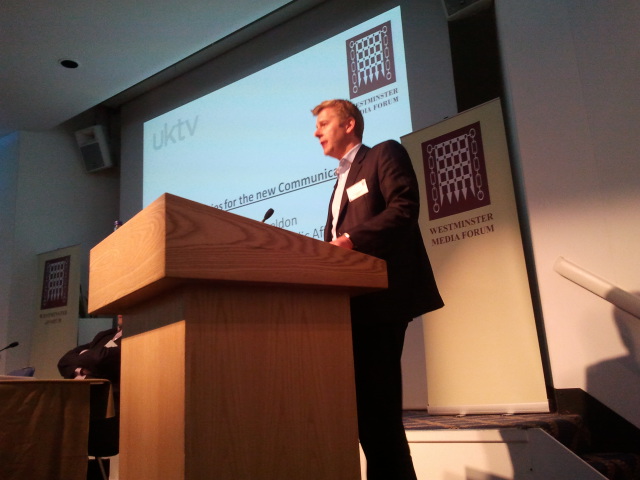The most salient comment in yesterday’s Westminster Media Forum on the future of local media came from Community Media Association (CMA) director Jacqui Devereux.
Having listened to presentations from several of the ‘big players’ (ITN, STV, Global Radio) interested in a bid to run the government’s proposed independently funded news consortia (IFNC) as a replacement for ITV1’s regional news service, Devereux said she welcomed talk of partnership, but was concerned about the ‘jockeying for position’ she had heard in the room.
Partnerships should not be established if the main issue is who controls that partnership, she suggested.
“There’s no reason why the bigger players and the smaller players can’t work together to make this work properly. But it will only work if there isn’t a big player in there saying we need to control this ‘because’,” she said.
Smaller players, such as the community radio stations and TV channels represented by the CMA, must have a protected place within the IFNC proposals, she said – a sentiment echoed by ITN chief executive officer John Hardie, whose vision for a ‘grand alliance’ of local media included an ‘open door policy’ to encourage smaller newsmakers to take part.
While the BBC is not bidding to run the consortia, the broadcaster, whose plans for a local video network were rejected by the BBC Trust last year, is in talks with the CMA and community radio stations about ways for working together for local news provision, David Holdsworth, controller for the English regions, said.
“The BBC can be an important catalyst in what is a burgeoning sector,” he explained.
Collaboration with ‘heritage’ media could help spur growth at this level, Steve Buckley, joint managing director from Community Media Solutions, added, suggesting that support should be found for financing a professional journalist as a mentor and trainer at each community radio station in the UK.
“The time is now – not to wait for a burgeoning sector to go into decline. We cost a fraction of supporting a Channel 3 output,” said Buckley.
However, as Devereux suggested, whether these partnerships will be iterations of the old ownership model or an attempt at a new layer of cross-media, multiplayer news providers is a decision for the government and media regulator.
In tune with Devereux and Buckley’s vision for better use of community resources and independent news organisations, former Johnston Press chairman Roger Parry shared some suggestions from his recent report for the Conservative Party on local media.
Parry’s research, which looked at production costs for local news and compared regional media in the US and Canada with the UK system, suggested a network of 80 city-based, local multimedia hubs could provide the future for regional news provision in the UK.
These centres could bring in a new local video layer to the bottom of the existing news pyramid in the UK – content which could then be aggregated up to local newspapers and stations and beyond.
But to achieve this the old divisions between TV reporters and a newspaper reporter will have to be broken down. The emphasis would be on journalists as content coordinators more than content creators, he said.
